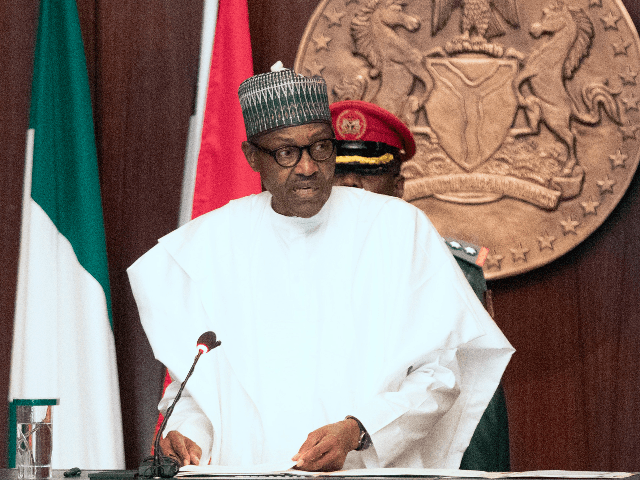The Islamic State West Africa Province (ISWAP) — the formal name for Boko Haram — on Saturday claimed responsibility for two separate attacks in recent days, the Guardian reported: a bombing in the northeastern Nigerian state of Tabara and a fatal police station shootout in central Nigeria’s Kogi state.
ISWAP allegedly issued statements via the messaging app Telegram on Saturday, April 23, in which the jihadist terror group said it was responsible for two incidents: an explosion at a bar in the Tabara town of Nukkai (on April 22) and an armed attack on a police station in the Kogi town of Adavi (on April 23).
ISWAP allegedly planted and then detonated an explosive device at a “moonshine” bar in Nukkai, situated on the outskirts of Taraba’s state capital, Jalingo, on the evening of April 22.
“The explosive concealed in a polythene bag was left at the bar by an unknown person during a power outage,” local police spokesman Usman Abdullahi told Agence France-Presse (AFP).
“Eleven people were injured in the blast, including 10 men and a woman,” he added.
ISWAP claimed responsibility for the explosion via Telegram on April 23, writing, “The soldiers of the caliphate detonated an explosive device … inside a bar in Nukkai.”
ISWAP stormed a police station in the town of Adavi in central Nigeria’s Kogi state on April 23. The terror organization confirmed the attack by claiming responsibility for it on Telegram later that same day, writing, “Soldiers of the caliphate attacked a police station.”
A local police spokesman named William Ovye Aya told reporters “hoodlums” initiated a gun battle with Adavi police officers upon storming the town’s police station on April 23. The shootout killed at least three police officers.
ISWAP took to Telegram on April 21 to claim responsibility for a separate explosion at “a market where alcohol was sold” in Taraba state’s Iware town on April 19 that killed six people and wounded 16 others.
The Guardian on April 23 described the Iware market blast as the first indication for Nigerian security officials that ISWAP “was operating in Taraba, outside its known area of operations in the Lake Chad region.”
Central Africa’s Lake Chad basin unites northeastern Nigeria with neighboring Chad, Cameroon, and Niger. The jihadist terror group Boko Haram launched a violent insurgency in northeastern Nigeria in 2009 with the aim of establishing a regional Islamic caliphate. The group has perpetrated mass killings and kidnappings over the past several years and has experienced something of a resurgence in recent months.
The Guardian on Saturday deemed Boko Haram a “rival” of ISWAP while noting that the groups are “known to step up attacks during the Muslim holy month of Ramadan.” In reality, Boko Haram renamed itself ISWAP and pledged allegiance to then-ISIS Caliph Abu Bakr al-Baghdadi in 2015. Nigerian government authorities insisted following the pledge of allegiance that a dissident branch of Boko Haram existed, then claimed to vanquish the alleged dissidents and blame subsequent jihadist attacks on ISWAP.
This distinction is one parroted by Nigerian President Muhammadu Buhari, who claims the two groups are distinct in an effort to paint Boko Haram as “defeated” by his administration. Buhari has repeatedly alleged that Nigerian security forces have either vanquished Boko Haram or that it no longer exists. Based on this premise, Nigeria’s government has attributed recent attacks by Boko Haram to ISWAP.

COMMENTS
Please let us know if you're having issues with commenting.